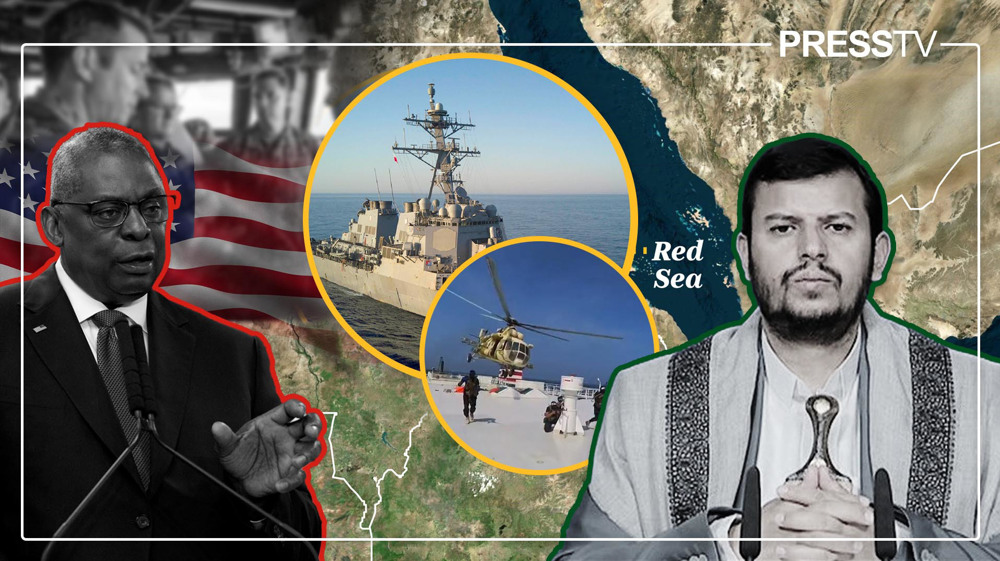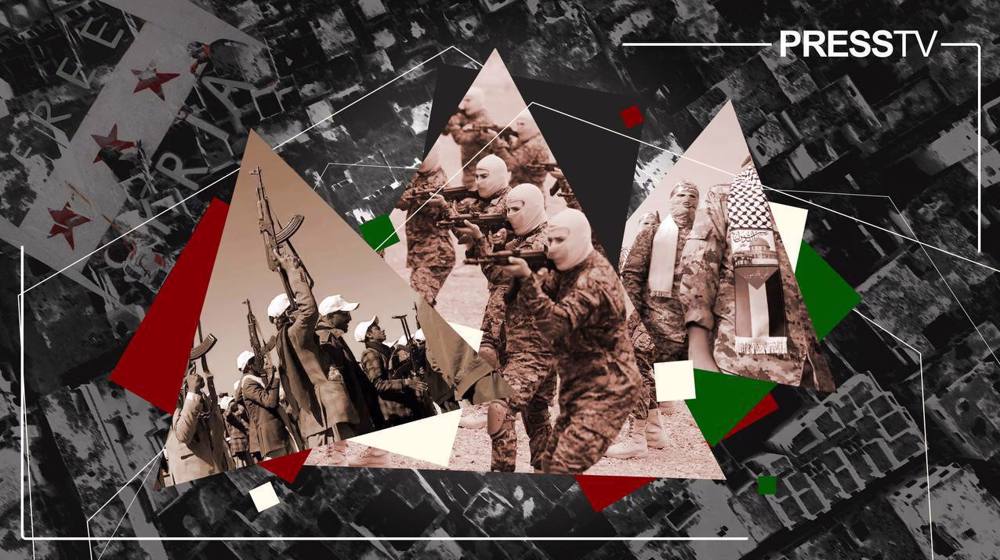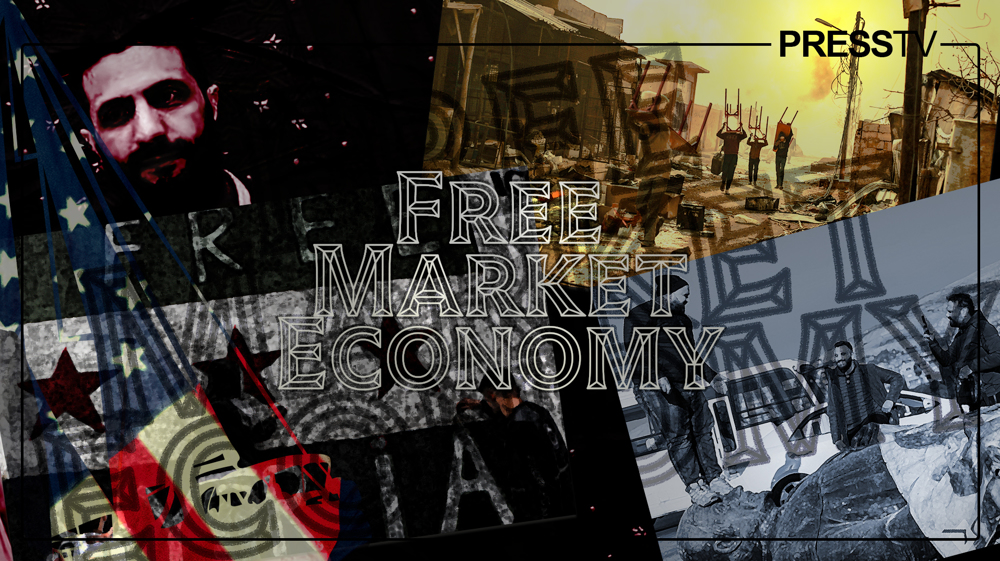Ansarullah leader sounds death knell for Israeli-US plots as Red Sea boils
By Ali Rezvanpour
Sayyid Abdul Malik Al-Houthi, the leader of Yemen's Ansarullah resistance movement, in a much-anticipated speech on Wednesday, spoke at length about recent developments in the Red Sea as well as the formation of a ten-nation maritime alliance led by the United States.
In a thumping speech broadcast live, Houthi said the Yemeni military will not hesitate to target US warships in the Red Sea if Washington and its allies carry out military strikes against the country.
In a gentle warning to members of the US-led Red Sea alliance, the Ansarullah leader said they must not sacrifice their security at the expense of the Israeli regime’s interests.
The speech came amid a string of attacks on Israel-linked vessels in the Red Sea in recent weeks by the Yemeni military and the subsequent formation of an alliance by the US and its allies.
The writing was on the wall: If the US wants to continue its adventures in the region and use the militarization of regional waters to secure the interests of the Zionist regime, it will suffer a blow.
While calls for cessation of Israeli attacks on the besieged Gaza Strip grow louder, the United States is trying to keep the flames of war fanning to settle its own scores, proving its direct complicity.
The recent visit by US Defense Secretary Lloyd Austin to occupied Palestinian territories, which followed visits of other top-ranking US officials to Tel Aviv, must be seen in the same context.
The maritime alliance led by the US, as announced by Austin, includes England, France, Italy, Spain, Norway, the Netherlands, Canada, Bahrain and Seychelles. They will cooperate either in terms of patrolling the Red Sea waters or providing intelligence.
The purpose of Austin's trip to Manama was to get Bahrain's nod to establish the center of the ten-member alliance against Yemen in Bahrain and also to provide a significant part of expenses.
Yemeni military’s attacks targeting Israeli ships in the Red Sea came after months of the Israeli regime’s genocidal campaign in Gaza, backed fully by the US and other Western countries.
Therefore, the reason for the spread of war to Yemen is the Israeli regime and its Western backers. They asked for it and Yemen was not going to be a mute spectator to the gory genocide in Gaza.
Yemen has carried out attacks on ships that transport cargo to the occupied territories. It has warned the regime that if they continue to kill the defenseless people of Gaza, the Red Sea and other routes leading to ports of the occupied territories will be targeted with missiles and drones.
Yemeni officials, however, have made it emphatically clear that shipping lines are open for ships that are not going to the ports controlled by the Zionist regime, and they can easily pass through there.
The fear that governs American authorities and the countries following them shows the standing of the Axis of Resistance against the aggression of the Zionist regime during the past 75 days.
The war in Gaza has exposed the duplicity of Western states as well as human rights organizations. Western human rights institutions have not only not condemned the actions of the Zionist regime but have also remained silent regarding the United Nations resolutions on the Gaza ceasefire.
From the words of the leader of Ansarullah, it can be inferred that the Axis of Resistance is prepared for any eventuality to confront the Zionist regime. They are capable of destroying the regime if the right conditions are provided and no obstacles are placed in front of it by mercenary regimes.
The reason for the prolongation of the war on Gaza is the insistence of the Israeli regime and the US to achieve specific goals, which increase the possibility of the war spreading to other regions.
This war is unprecedented in many respects, including the worst genocide and the record number of casualties of children, women, the elderly, medics, journalists, academics, etc.
Converting Washington's goals into common Western or international goals is one of the traditional strategies of the United States to reduce the political, military and financial costs of its adventures.
The United States is trying to use this strategy for Yemen. According to Sana'a, Yemen's key demand is an immediate end to the slaughter of Palestinians in Gaza and their access to food and medicine.
On the other hand, since the beginning of the latest Israeli aggression, the United States has helped prolong the war and increase civilian casualties by providing an umbrella for the regime in Tel Aviv.
The formation of this maritime coalition can be analyzed as the point of transition of the crisis from occupied Palestine to the Red Sea. Shifting attention from the Gaza war and Israel's war crimes in occupied Palestine helps Tel Aviv's expansionist goals in Gaza and the occupied West Bank.
In recent days, the Pentagon has moved a task force led by the Eisenhower aircraft carrier from the Persian Gulf to the Bab al-Mandeb Strait in the Red Sea off the coast of Yemen to support a possible plan to counter attacks by the Yemeni armed forces.
There is no doubt that with any exchange of fire between the US and Yemeni forces, the situation in the region can get out of control. Yemen fought West-backed Saudi Arabia and the UAE for years and eventually forced them to walk away.
As Houthi affirmed in his speech, both the Israeli regime and the US are complicit in the Gaza carnage as Washington has been shipping lethal weapons to the regime.
“The US administration represents another face of Zionism. President Joe Biden publicly and openly acknowledges that he is affiliated with the Zionist lobby in Washington,” the Ansarullah leader stated.
“The US has been overseeing the Zionist enemy’s genocide in Gaza since day one. It provides Zionists with different types of weapons and financial resources to commit massacres.”
He called on the Muslim countries to stand up and support the oppressed Palestinians.
“Muslims worldwide bear the responsibility to help Palestinians achieve victory over tyranny,” Houthi said, slamming some Arab states for being mute spectators to the Gaza genocide.
Ali Rezvanpour is a Tehran-based political commentator and university teacher.
(The views expressed in this article do not necessarily reflect those of Press TV)
VIDEO | Australians rally for Gaza ahead of Christmas festivities
VIDEO | Attacks on Sana'a
Iran reports further drop in annual inflation rate in December
Israel indicts two settlers over suspected spying for Hezbollah
Iran: US airstrikes on Yemen war crimes, violation of international law
Yemeni armed forces down F-18 fighter jet, repel US-UK attack: Spokesman
Iran warns against US-Israeli plot to weaken Muslims, dominate region
VIDEO | Public uproar in US against Israeli regime










 This makes it easy to access the Press TV website
This makes it easy to access the Press TV website